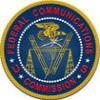To allow Americans with disabilities to experience the benefits of broadband, hardware, software, services and digital content must be accessible and assistive technologies must be affordable.
Accessibility for the Disabled
Smart cities could be lousy to live in if you have a disability
People with disabilities affecting mobility, vision, hearing, and cognitive function often move to cities to take advantage of their comprehensive transit systems and social services. But US law doesn’t specify how municipalities should design and implement digital services for disabled people. As a result, cities sometimes adopt new technologies that can end up causing, rather than resolving, problems of accessibility.

A Stellar Public Servant
A legend is leaving the Federal Communications Commission as the new year begins. Her name is Karen Peltz Strauss. Some of you may not have heard of her, but to the nation’s disabilities communities, she is a hero. She achieved this status the old-fashioned way. She earned it. In over 40 years in Washington, I have been privileged to work with many brilliant public servants. Karen Peltz Strauss is in the top-most tier of these incredibly able people. Her star shines brightly in the public service firmament. She came to the agency with a goal, she never wavered from that goal, and she achie
House Passes IDEA Act, a Bill to Improve Government’s Digital Services
The House passed by bipartisan voice vote the 21st Century Integrated Digital Experience Act, or 21st Century IDEA, which would require agencies to improve online customer experience by making new websites more user-friendly. The bill ultimately aims to make citizens less reliant on paper processes when interacting with federal agencies. The bill would set minimum accessibility, searchability and security standards for all new government websites, and require agencies to adopt web analytics tools to constantly improve sites’ functionality.

FCC Seeks Nominations for Chairman's Awards in Accessibility
The Federal Communications Commission will accept nominations for the eighth Chairman’s Awards for Advancement in Accessibility (Chairman’s AAA). The nomination period opens on Dec 1, 2018 and continues through Feb 28, 2019 for products, services, technologies or practices introduced to the public between Jan 1, 2018 and Dec 31, 2018. Nominations may be submitted for the development of new mainstream or assistive technologies introduced into the marketplace, the development of standards, or the implementation of best practices that further accessibility.

FCC Updates Hearing Aid Compatibility Reporting Requirements
The Federal Communications Commission today adopted a Report and Order that:

FCC Agenda for November 2018 Meeting
The Federal Communications Commission will hold an Open Meeting on the subjects listed below on Thursday, November 15, 2018:

FCC Announces Tentative Agenda for Nov 2018 Open Commission Meeting
Federal Communications Commission Chairman Ajit Pai announced that the following items are tentatively on the agenda for the Nov Open Commission Meeting scheduled for Thursday, Nov 15, 2018:
Galileo Order – The Commission will consider an Order that addresses waivers of certain satellite licensing requirements for receive-only earth stations operating with the Galileo Radionavigation-Satellite Service. (IB Docket No. 17-16)

Space Month at the FCC
In Nov, during what we’ve dubbed Space Month, the Federal Communications Commission will take up nine items to ensure that America leads in the New Space Age, with an emphasis on cutting through the red tape. We start with improving a satellite-enabled technology that millions of Americans rely on every day without even knowing it: the positioning, navigation, and timing service known to most Americans as the Global Positioning System, or GPS. The Commission will vote on allowing American devices to access the European global navigation satellite system, known as Galileo.
Child Advocates to FCC: Rules Were Not Made to Be Broken
A coalition of organizations told the Federal Communications Commission that the FCC should retain its children's programming rules. The Center for Digital Democracy, Campaign for a Commercial-Free Childhood, Common Sense Kids Action, Color of Change, Dr. Jenny Radesky, and the Benton Foundation wrote:
FCC Eyes Change to Hearing-Disabled Call Reimbursement
The Federal Communications Commission is planning to reduce its reimbursement for hearing-impaired phone services that display a call’s text. The FCC could adopt a change in its reimbursement formula within 12 months, it said in the Trump administration’s fall regulatory agenda. The FCC reimburses telecom service providers for hearing- and speech-impaired telephone services. Agency officials, though, are worried that providers are marketing captioned phone services to people who could use cheaper methods, such as amplifying phones, in order to receive larger reimbursements.

